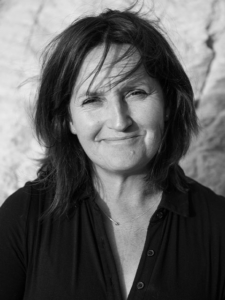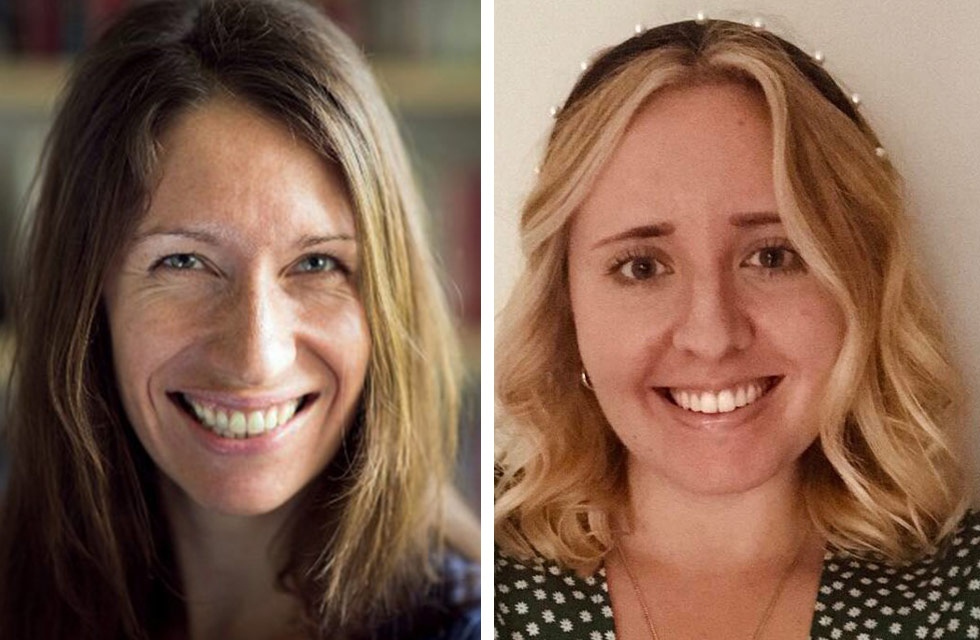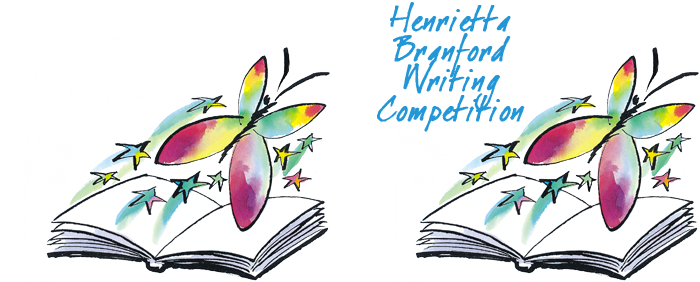Q&A with author Ros Roberts

The Branford Boase Award judges described your book as having ‘a very strong emotional punch’ Where did the idea start and what was your way into the book?
The idea started from a sad time. We lost our beautiful Bernese Mountain dog, Texi. She was only two. We were devastated, all five of us and it struck me so powerfully that she was a thread that had run through our family. The bond between pets and humans can be incredibly strong – a pure, unfettered bond.
Losing Texi made me think of how a child would cope with a sick pet when life for that child is already difficult. Digger is the link between the two sides of James’s life; his illness forces James’s parents and their partners to re-evaluate all their own relationships. It’s a tough premise for a book but James arrived on the page and I do believe his journey with Digger also brings joy, smiles and heart-warming moments!
My way into the book was through several crystal-clear scenes that I drafted first: the scene with James and Dave talking near the end, James finding the red thread and Mr Froggatt giving the class the first poem about ‘My home’. I like to work this way: write the first clear scenes wherever they appear in the story and then build the book around them like a jigsaw.
What was the thing you most enjoyed about working with your editors on the book?
I was so fortunate that for my first experience I was aided by two such perceptive, encouraging editors. The journey was wonderful and surprising.
In six years, only my incredible agent Gill McLay had read anything I had written. I so clearly remember the first editing notes Ruth and Ella sent me. Sitting in the hot sunshine of lockdown, I read their insightful comments. Wow! They understood my writing, they embraced what I was doing, they knew the characters inside out. That was the best moment.
Editors are so clever. They see things that we just don’t see as writers. They hold your hand and lead you through the vital, necessary improvements and adjustments to your work. I loved every stage but line edits are probably my favourite. The book is formed, the big changes are done; now let’s sort out the small stuff and I love writing the details! It’s a bit like going on holiday. You’ve survived the journey and the lost luggage. You’ve settled in. Now you can choose the beaches and trips and restaurants. Let the fun begin!
What is the thing you are most proud of about your book and why?
It has to be the book’s empathetic strength. Digger celebrates family life in all its forms. Even though James is struggling, he is loved and supported. Change can be hard but I am proud of the way the book helps children to understand that stepparents and blended families can thrive in a strong, positive way. Readers have sent some heart-warming feedback. If my writing can bring reassurance and comfort to just one person, my job is done.
You have been a teacher. Did that feed into your storytelling?
Yes, definitely and in many ways. The children I taught (some time ago now!) taught me so much about life. It is a great privilege to spend the day with 30 young people.
My teaching experience totally convinced me that children need to freewrite. So often today, children write with the constant headache of ‘correction’. Mr Froggatt is my great advocate of freewriting! His poetry tasks and big red box give his class the chance to express themselves in a way they haven’t done before. For James, this is a strong part of his journey and it was important to me to reflect the joy that freewriting can bring.
Teaching also introduced me to writers who inspired my style. Reading aloud George Layton’s The Fib and other stories and Judy Blume’s Superfudge convinced me to have a go. I’ll never match their genius but I’m giving it my best shot!
What advice would you give to debut writers?
Becoming a debut writer is like starting a new job so ask lots of questions and don’t be afraid of asking the obvious!
Keep a record book of everything that happens – you will forget.
Keep a notebook with a ‘to-do’ list.
Take things one step at a time. I’m old (51!) so embracing social media has been an adventure.
Celebrate the fact you are published! You wouldn’t have made it unless you truly deserved to have your work in print!
Q&A with editors Ruth Bennett and Ella Whiddett

What was it about Ros’s writing that most excited you about her book?
Ruth: I adore Ros’s ability to create character through observational details – they capture the ordinary and the everyday with a warmth that really allows you to connect with the characters in her work and to also feel that you know them and can see people you know in them. It’s rare to find writers that have the confidence and skill to write contemporary, real-life stories and to celebrate people and relationships and the challenges of growing up. When someone does it well, like Ros does, it has the power to move you and stay with you. I hope that, for young readers, it also makes them think and supports and inspires them in their own lives.
Ella: I still remember reading the manuscript for the first time and being totally sucked in by James’s voice. It felt like he was real, like he was in the room with me, or I was in school with him, observing his classmates alongside him. Ros’s ability to capture how we as humans act, to pinpoint all our little mannerisms, tones of voice, body language, just blew me away, and to see those behaviours through the eyes of a young boy – it made the ordinary feel extraordinary. I also loved James’s connection with Digger, his dog, which was so pure and relatable. And of course, the poetry was lovely – some poems made me laugh, some made my heart hurt, but all made me empathise.
What were the main things you worked on with her as editor?
Ruth: Ella and I co-edited Digger and Me, which was a joyful experience. Together, we worked on honing the structure of the story so that the emotional beats of James’s story (and Digger’s) really had the weight and impact that we wanted them to. As is often the case, Ros held all of this in the story already and we helped (I hope!) to give it shape on the page. We encouraged her to draw out some of the links and themes in the story so that they really stood out strongly – making more of James’s poetry as a route to handling his emotions, for example.
Ella: Ruth and I knew that James was at the heart of the book – everything he’s going through, how he’s feeling, the poems he writes. So we didn’t really touch him! Instead, we focused on everything around him, building up the detail of his world, from his friends at school to his life at home. We wanted to flesh out characters like Mum and Dad, to understand their relationship more – with both James and each other, and also James’s step-parents, who James begins the story disliking, but slowly grows to love. We really wanted to reader to go on that journey with James. Cathy, in particular, was a tricky one to crack – James is so different from her, how can he ever understand her and vice versa? We had lots of conversations about what they would bond over, how they’re each adjusting to having this new person in their life just because they both love James’s dad. In the end, their relationship isn’t perfect – but that felt right, it felt true to life.
What do you think marks out the most successful writers for young people?
Ruth: This is a very tricky question! We’re so fortunate to be working at a time when there are so many talented writers, all writing different kinds of stories in different ways. For me, the most exciting writers are those who write with real young people at the centre of the story and manage to capture the intense wonder, hope and anxiety that comes with being young. As most writers for young people are adults, writing with a child’s perspective is a real skill and it’s certainly not easy.
Ella: I think, firstly, authenticity of voice. A writer who can get on a reader’s level and tell them a story that feels like it could be theirs is a writer to treasure. And secondly, a writer who can tackle the big things, the challenging things, in life, in a non-patronising and entertaining way. Ros’s books deal with divorce and terminal illness and that excruciatingly awkward in between stage of being 11 years old and not knowing who you are or where you fit in, but her books never feel heavy or burdensome. Instead they feel celebratory – humour and heart goes a long way in balancing out the hard stuff. Readers need both elements in careful measure.
What do you find most satisfying about being an editor?
Ruth: I’m lucky to have a job that I found hugely enjoyable and challenging – there is a satisfaction in always encountering new problems and working as part of a team to solve them. Every author-editor relationship is unique and every book is also unique, so it’s never repetitive or dull! Working with talented creative people to bring their vivid imagined worlds to life and supporting them in honing their writing skill is an honour.
Ella: I love working collaboratively with authors – sharing a vision and sending notes back and forth, trying to unpick plot holes and fix pesky problems. A great point in any project is when an author has that eureka moment and everything falls into place: the vision becomes realised! It’s always such a joy reading a final draft through and seeing how much has changed from the first draft – but there are always those special moments and lines that make it through all the cuts and revisions and swaps. They’re the best bit.
What advice would you give anyone wanting to become an editor?
Ruth: Be curious. Explore as much as you can – read widely, think about how stories are formed and speak to as many people as you can that are part of the industry. Learn about how a book is made, too – as an editor, your role involves working with different departments to shepherd an author’s manuscript into finished book form and so the more you understand the bigger picture, the better!
Ella: Editing is about problem solving, but it’s also about passion. You practise the first, but the second is inherent. I think the only advice that allows you to achieve both is to read! Read widely. Read critically. Read for enjoyment. Read to know what’s working in the market right now. Read to understand the key components of story-telling. Read to discover what styles and genres you love – and then champion those books.
Digger and Me is published by Stripes Publishing, 978-1788953207, £6.99 pbk.
Thank you to Ros Roberts and to Ruth Bennett and Ella Whiddett for answering our questions.



